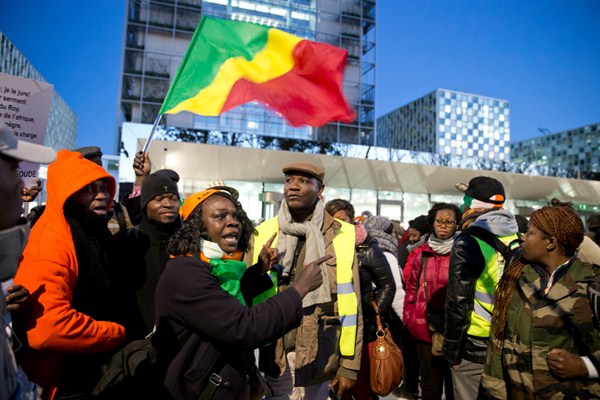It’s been a busy few weeks for Cote d’Ivoire’s courts. A spate of recent trials targeting high-profile members from the previous government, including former President Laurent Gbagbo himself, has redirected attention to the strikingly unbalanced pursuit of justice that has followed the West African country’s post-election conflict seven years ago. Even as the political class shifts its focus to the 2020 presidential election, the wheels of the judiciary keep turning, at least when it comes to trying those who were on the losing side of the fighting.
Among the latest notable decisions was a verdict issued in December against Hubert Oulaye, a former civil service minister under Gbagbo who stood accused of financing attacks in June 2012 that killed more than a dozen people, including seven Nigerien peacekeepers. Oulaye fled to Ghana in the aftermath of the 2010-11 conflict, which was triggered by the refusal of his former boss to accept his 2010 electoral loss to current President Alassane Ouattara. The crisis lasted until April 2011 and claimed more than 3,000 lives, ending only after France and the United Nations staged a military intervention and Gbagbo was arrested, allowing Ouattara to take office.
The attacks Oulaye was accused of organizing while in exile took place more than a year later in the west of the country, a bastion of Gbagbo support. Carried out by Ivoirian and Liberian mercenaries, they fueled concern that the country could be plunged back into conflict—and that Gbagbo allies were specifically working to make this happen.

